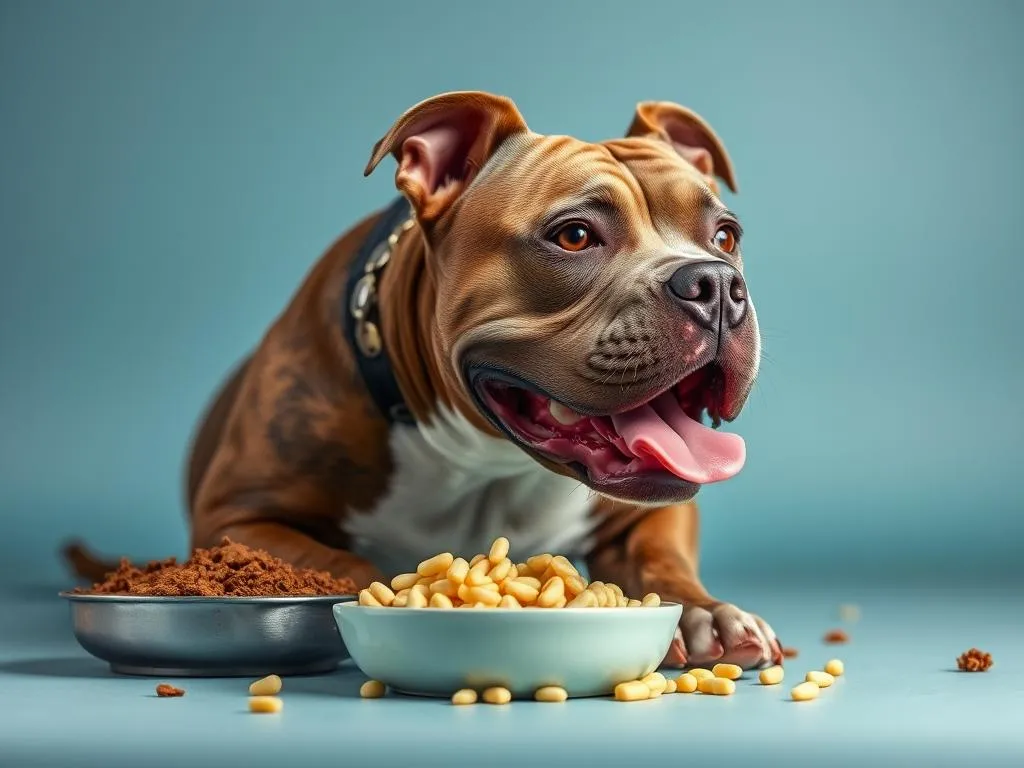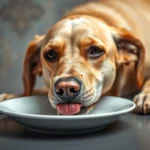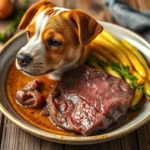
Introduction
Proper nutrition plays a crucial role in a dog’s health and muscle development, especially for breeds like Pitbulls. These dogs are known for their strength and agility, but to maintain and enhance these traits, they require a well-balanced diet tailored to their specific needs. In this article, we will delve into the best dog foods for Pitbulls to gain muscle, exploring their unique nutritional requirements, key ingredients to look for, top food recommendations, and even homemade recipes that can help your Pitbull build muscle effectively.
Understanding Pitbulls and Their Nutritional Needs
Breed Characteristics
Pitbulls are medium-sized, muscular dogs known for their energetic and playful nature. Their physical structure is conducive to muscle development, but achieving optimal muscle gain requires the right diet. Unlike other breeds, Pitbulls have a higher metabolism, which means they need more energy to sustain their activity levels. Understanding their unique characteristics is essential for providing them with the right nutrition.
Nutritional Needs for Muscle Gain
To support muscle gain, it’s vital to focus on macronutrients: proteins, fats, and carbohydrates.
- Protein is crucial for muscle repair and growth. Active Pitbulls generally require more protein compared to sedentary dogs to support their muscle-building efforts.
- Fats provide a concentrated source of energy, which is essential for vigorous activities. Healthy fats also support overall health and skin quality.
- Carbohydrates offer a quick energy source, particularly from complex carbohydrates, which help sustain energy levels during exercise.
Additionally, vitamins and minerals play a significant role in muscle recovery and overall health. Key nutrients like calcium and phosphorus are essential for bone health, while omega fatty acids support joint health.
Key Ingredients to Look for in Dog Food
High-Quality Protein Sources
When selecting dog food, prioritize high-quality protein sources. Look for:
- Chicken: A lean protein that supports muscle growth.
- Beef: Rich in iron and amino acids.
- Fish: Provides omega-3 fatty acids that promote healthy skin and coat.
The quality and digestibility of the protein are as important as the quantity. Always check for named meat sources rather than vague terms like “meat meal.”
Healthy Fats
Healthy fats are essential for energy and muscle gain. Good sources include:
- Fish Oil: Rich in omega-3 fatty acids, which are anti-inflammatory and beneficial for joint health.
- Chicken Fat: A concentrated source of energy that can enhance the overall caloric intake.
Carbohydrates for Energy
Complex carbohydrates offer sustained energy for active dogs. Consider including:
- Brown Rice: A digestible source of carbohydrates.
- Sweet Potatoes: High in fiber and vitamins, providing energy without the risk of insulin spikes.
Essential Vitamins and Minerals
Vitamins and minerals are crucial for muscle development and overall health. Key nutrients to ensure include:
- Calcium and Phosphorus: Vital for bone strength.
- Omega Fatty Acids: Support joint health and skin condition.
- Antioxidants: Help combat oxidative stress from exercise.
Top Dog Foods for Pitbulls to Gain Muscle
Dry Kibble Options
Dry kibble is a convenient option for many dog owners. Here are five recommended brands for muscle gain in Pitbulls:
-
Brand A: This formula features real chicken as the first ingredient, ensuring high protein content. It also includes healthy fats from fish oil and complex carbohydrates from brown rice and sweet potatoes.
-
Brand B: Known for its grain-free formula, this brand includes lamb and sweet potatoes, providing a rich source of protein and energy. Added vitamins and minerals boost overall health.
-
Brand C: Featuring beef as the primary ingredient, this kibble is packed with protein and includes added glucosamine for joint support. It’s perfect for active Pitbulls.
-
Brand D: This kibble emphasizes a balanced diet with chicken meal and brown rice, promoting muscle gain while maintaining digestive health.
-
Brand E: A high-protein formula that combines turkey and fish, this brand is rich in omega fatty acids and antioxidants, supporting muscle growth and recovery.
Wet Food Options
For those who prefer wet food, here are five excellent brands:
-
Brand A: This wet food is made with real beef and vegetables, providing a hearty source of protein and essential nutrients.
-
Brand B: Featuring chicken and rice, this formula is easily digestible and packed with protein, making it ideal for muscle gain.
-
Brand C: A fish-based option that provides omega fatty acids, promoting healthy skin while supporting muscle development.
-
Brand D: This wet food contains turkey and sweet potatoes, offering a balanced diet rich in protein and carbohydrates.
-
Brand E: A high-protein formula with lamb and peas, this option is great for active dogs needing extra muscle support.
Raw Diet Considerations
A raw diet can also promote muscle gain in Pitbulls. Raw foods are rich in nutrients and can be more digestible for some dogs. When considering a raw diet, focus on:
- Meat: High-quality proteins like chicken, beef, and fish.
- Bones: Raw bones can provide calcium and help clean teeth.
- Vegetables: Incorporate dog-safe vegetables for vitamins and minerals.
Always consult a veterinarian before transitioning to a raw diet to ensure it meets all nutritional needs and is safe for your dog.
Homemade Dog Food Recipes for Muscle Gain
Nutritional Guidelines for Homemade Dog Food
Creating homemade dog food allows for complete control over your Pitbull’s diet. Focus on balance, ensuring you include:
- Protein: Aim for a high-quality source in each meal.
- Carbohydrates: Incorporate complex carbs for energy.
- Fats: Use healthy oils to provide necessary fats.
Recipe Ideas
Here are some simple and nutritious recipes for muscle gain:
High-Protein Chicken and Rice
- Ingredients:
- 2 cups of chicken (cooked and shredded)
- 1 cup of brown rice (cooked)
- 1 cup of mixed vegetables (carrots, peas)
-
2 tablespoons of olive oil
-
Instructions: Combine all ingredients in a bowl and serve.
Beef and Sweet Potato Stew
- Ingredients:
- 1 pound of ground beef
- 2 sweet potatoes (cubed)
- 1 cup of carrots (diced)
-
4 cups of water
-
Instructions: Brown the beef in a pot, add vegetables and water, and simmer until sweet potatoes are tender.
Salmon and Quinoa Bowl
- Ingredients:
- 2 cans of salmon (drained)
- 1 cup of quinoa (cooked)
- 1 cup of spinach (cooked)
-
1 tablespoon of fish oil
-
Instructions: Mix all ingredients in a bowl and serve.
Turkey and Veggie Mix
- Ingredients:
- 1 pound of ground turkey
- 1 cup of chopped broccoli
- 1 cup of brown rice (cooked)
-
2 tablespoons of chicken fat or oil
-
Instructions: Cook turkey until browned, add broccoli and rice, mix well, and serve.
Feeding Guidelines for Pitbulls
Portion Control and Feeding Frequency
Feeding your Pitbull the right amount is crucial for muscle gain. Recommended portion sizes typically range from 2 to 4 cups of food per day, depending on their weight and activity level. Split meals into two or more servings to aid digestion and maintain energy levels.
Transitioning to New Food
When switching to a new dog food, do so gradually. Start by mixing a small amount of the new food with the old food, increasing the new food’s proportion over a week. This method helps avoid digestive upset.
Monitoring Health and Adjusting Diet
Regularly assess your dog’s health and adjust their diet as needed. Signs of a healthy diet include a shiny coat, good energy levels, and healthy stools. Conversely, if you notice weight gain, lethargy, or digestive issues, consult your veterinarian to adjust their diet appropriately.
Common Mistakes to Avoid
Overfeeding and Weight Gain
While muscle gain is the goal, it’s essential not to overfeed, which can lead to obesity. Monitor your Pitbull’s weight and adjust their caloric intake accordingly.
Inadequate Protein Intake
Ensure your Pitbull receives enough protein to support active lifestyles. Low protein diets can hinder muscle development and overall health.
Ignoring Food Allergies and Sensitivities
Be aware of any food allergies or sensitivities your Pitbull may have. Common allergens include grains, beef, and chicken. Consult with your vet if you suspect food-related issues.
Conclusion
Proper nutrition is vital for ensuring your Pitbull gains muscle effectively and maintains overall health. By focusing on high-quality proteins, healthy fats, and essential vitamins and minerals, you can support your dog’s muscle development and well-being. Always remember to consult with a veterinarian for personalized dietary advice and adjustments, as individual needs may vary. With the right diet, your Pitbull can thrive and reach their muscle gain goals.









